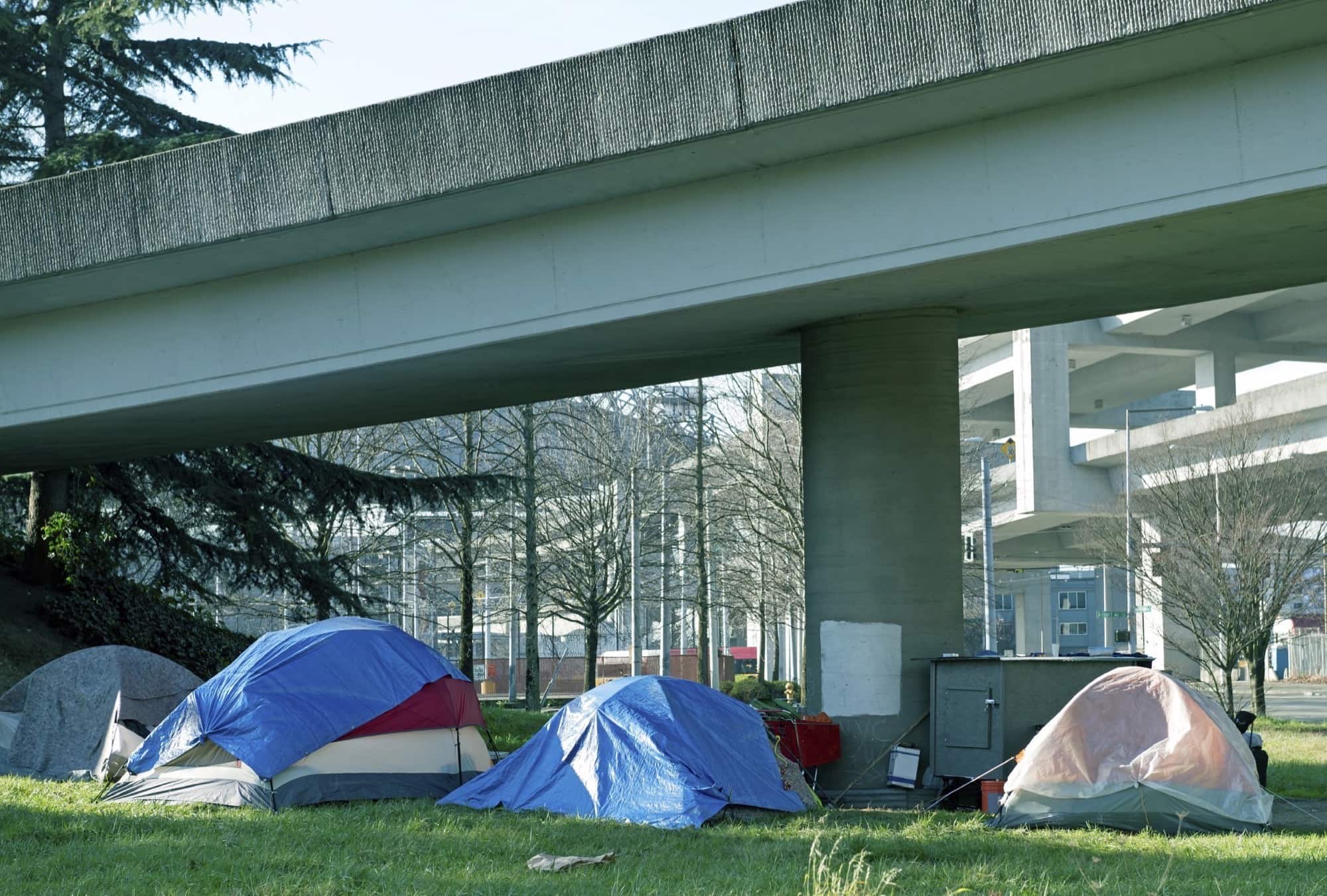Not just Seattle: Homelessness is a national crisis
November has several annual campaigns for driving awareness to the nation’s homelessness crisis.
November is National Youth Homeless Awareness Month. The campaign was launched as a resolution by Congress in 2007 to acknowledge the more than 2.5 million youth who experience homelessness each year. The national resolution encourages businesses, organizations and volunteers to intensify efforts to combat youth homelessness during the month.
This week is National Hunger and Homelessness Awareness Week. The campaign was launched in 1975 at Villanova University to organize people and draw attention to the crises of hunger and homelessness. It is held during the week prior to Thanksgiving and sponsored by the National Coalition for the Homeless and National Student Awareness Campaign Against Hunger.
National Runaway Prevention Month is also held in November to bring public attention to experiences of runaway and homeless youth. Chicago-based National Runaway Safeline said the campaign began in 2001 by the National Center for Missing & Exploited Children’s conference in Washington, D.C. Advocates met on the steps of the White House and pledged a weekly campaign that ultimately expanded to one month.
These and other events are held across the country this month to demonstrate that homelessness is a national problem. In other words, if you think the issue is confined to Seattle, think again.
In rural America, urban America and Middle America, the homelessness crisis has grown as affordable housing stock nationwide dwindles and government dollars to housing assistance programs have plateaued. And while local officials here have been maligned for failing to conjure up quicker, more expansive solutions to the crisis, it appears that often they’re in lockstep with the rest of the country.
Homelessness is prevalent in Seattle, but it’s also prevalent in Burlington, VT, a city with a population about half of West Seattle. News outlets there reported in April that residents are concerned city officials aren’t doing enough to address a growing homeless encampment. And it’s prevalent in Nashville, where at least one news outlet chided city officials there for reluctance to try solutions the outlet claims are working in Austin and Denver.
(Austin in 2018 created a Community First Village, a 51-acre community with permanent affordable housing and support for people emerging from chronic homelessness. Denver in 2020 created Safe Outdoor Spaces—healthy, secure and staffed environments that provide outdoor, individualized shelter and services for people experiencing homelessness.)
Homelessness is a concern among youth populations, as University of Chicago statistics point out that one in 10 young adults ages 18-25 in the U.S. experience homelessness. But it’s also a concern among the elderly: In Miami Dade County, FL (the seventh most populous county in the nation) one in four adults experiencing homelessness are 60 and over, according to the Miami Herald.
And the crisis continues to disproportionately affect people of color— in Seattle and elsewhere. According to 2019 U.S. Housing and Urban Development statistics, 52 percent of homeless families nationwide in 2019 were Black, although Blacks comprise just 13 percent of the U.S. population. About 22 percent of Latino families in the U.S. are homeless, though Latinos comprise 18 percent of the population. Evictions are a major contributor to homelessness among people of color: According to statistics from Princeton University’s Eviction Lab, one in four Black renters lived in a county where the Black eviction rate was more than double the white eviction rate. And Black women and Latinas faced higher eviction rates than men.
United Way of King County works to keep people facing the prospect of homelessness in their homes, while connecting those experiencing homelessness with housing and income.
With our Streets to Home program, United Way has helped more than 2,500 people with either housing or jobs, including 77 percent people of color housed and 65 percent people of color connected to jobs.
Our Home Base program provides rental assistance so people don’t end up with significant debt to repay after the COVID-19 crisis. Thus far, we have provided more than 15,000 households with rental assistance.
Also, while we recognize this is a national problem, United Way believes that, locally, we have a great opportunity to move the needle on homelessness by rallying behind the King County Regional Homelessness Authority. Formed in December 2019, KCRHA coalesces all efforts to eradicate homelessness under one umbrella. KCRHA coalesces policy, funding, resources and services with an equity and social justice lens.
All national campaigns spotlighting homelessness call for more awareness, resources and involvement. Rather than pointing blame, they urge people to be proactive and work together to create lasting solutions. That’s an approach everyone working to solve the nation’s homeless problem should adopt.


Comments